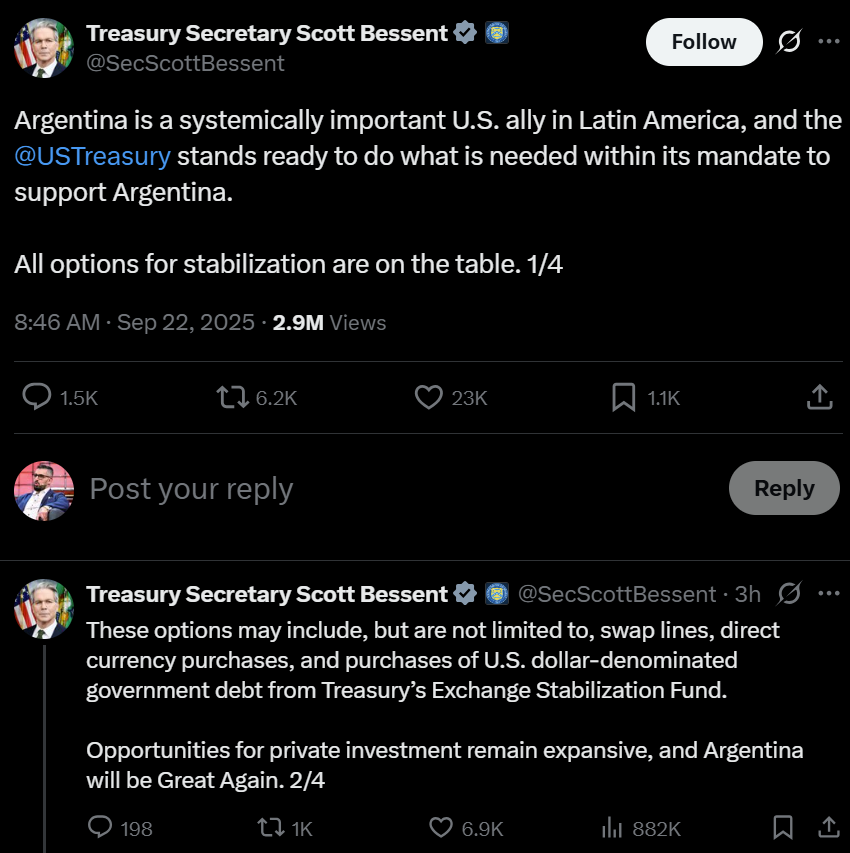Markets move sideways as global stocks lack direction
Global stocks barely moved Monday, even after the Dow and S&P 500 closed last week at fresh record highs. Futures were flat across the board Sunday night.
Dow futures fell by 51 points, or 0.11%. S&P 500 futures dropped 0.13%. Nasdaq 100 futures slipped 0.15%. The momentum from last week’s rally didn’t carry over. No one’s pulling out, but no one’s jumping in either.
The previous week ended strong. The S&P 500 climbed 1.2%, the Dow rose 1%, and the Nasdaq led with a 2.2% gain. Even the Russell 2000 small-cap index saw a 2.2% jump — its seventh straight winning week. Still, U.S. traders didn’t push higher after the weekend. Market participants are keeping one eye on global headlines and the other on the Fed.
Trump’s $100k visa fee slams Indian tech stocks
Indian stocks were hammered Monday after President Donald Trump dropped a new immigration policy bomb late Friday. He signed off on a $100,000 fee for every new H-1B visa. These visas are used for high-skilled foreign workers. In 2024, nearly 400,000 were issued, and 71% of them went to Indians.
The market in Mumbai reacted fast. Nine out of the ten Indian tech firms listed on the Nifty IT sub-index were down. Mphasis fell by over 4%, Persistent Systems lost 3.8%, and LTIMindtree dropped by 3.79%. The sector relies heavily on U.S. contracts and work permits. The new rule adds serious cost pressure.
The move came just days after the Federal Reserve cut interest rates by 25 basis points, its first cut since December. That dovish shift didn’t ease global market nerves either.
In China, stocks reacted to their own monetary news. The People’s Bank of China left its benchmark lending rates unchanged for the fourth straight month. The one-year Loan Prime Rate stayed at 3.0%, and the five-year held at 3.5%.
The former guides personal and business loans. The latter shapes mortgage prices. China’s CSI 300 Index nudged up 0.46%. A Reuters poll had already predicted the rates would remain flat, so investors weren’t shocked. But they weren’t excited either.
Hong Kong didn’t get the same bounce. The Hang Seng Index dropped 1%. Its tech sub-index dropped even 1.18%. There’s still pressure on big Chinese firms, especially as tech remains in the crosshairs of both regulation and weak sentiment.
Asia mixed, Europe weak, traders eye inflation numbers
Japan’s Nikkei 225 ended the session up 0.99%, closing at 45,493.66. The Topix Index added 0.49%, finishing at 3,163.17. Japan’s 10-year government bond yield hit 1.650%, the highest since July 2007. That’s a significant spike for a country that’s kept borrowing costs near zero for decades.
South Korea’s Kospi rose 0.68% to 3,468.65, while its smaller counterpart, the Kosdaq, jumped by 1.3% to 874.36. Australia’s ASX/S&P 200 added 0.43%, closing at 8,810.9.
Europe didn’t share the optimism. The Stoxx 600 index was down 0.2% shortly after the open. Most major sectors were in the red. Auto stocks were among the worst hit. By 8:15 a.m. in London, the Stoxx Europe Automobiles and Parts index had dropped 2.3%.
This entire global shuffle comes as U.S. markets wait for the personal consumption expenditures price index — the inflation gauge the Fed cares about. That data is expected later this week. Traders expect inflation to stay contained enough for Jerome Powell and the Fed to stick to their current stance.
The smartest crypto minds already read our newsletter. Want in? Join them.
Vous aimerez peut-être aussi

Peso in Freefall: U.S. Lifeline While Argentina Turns to Crypto

Michael Saylor Pushes Digital Capital Narrative At Bitcoin Treasuries Unconference
